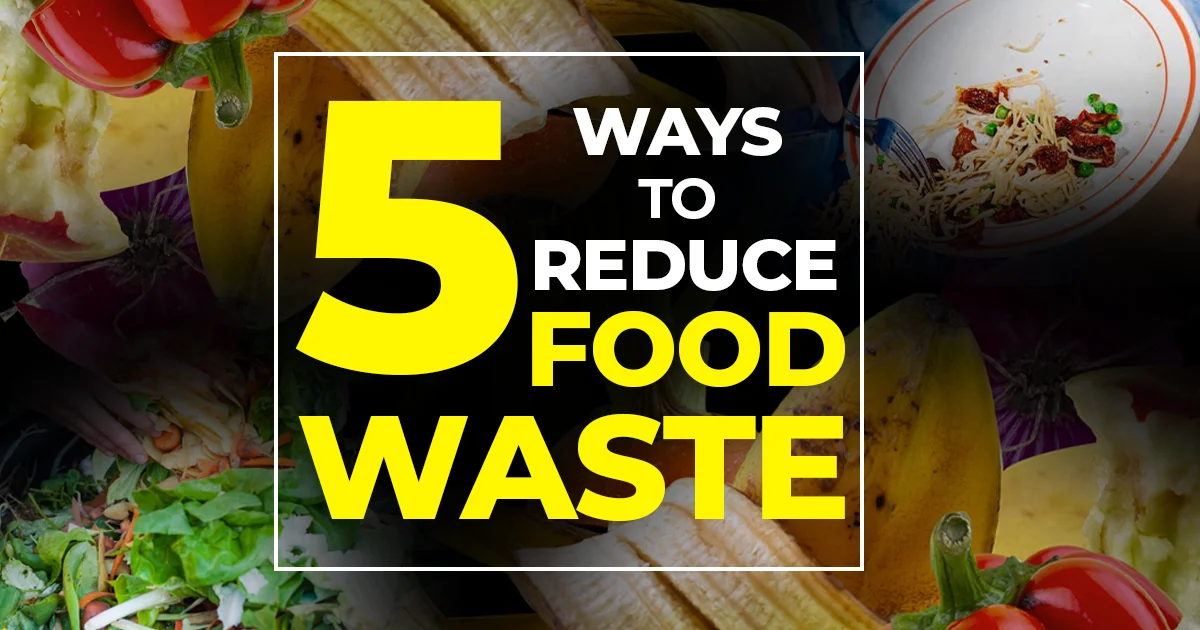Food waste is a rising global concern that impacts our environment, economies, and social welfare. Every year, food waste grows to millions of tons, contributing to greenhouse gas emissions and resource depletion. However, we can collectively take significant steps to reduce food waste by adopting mindful practices and making a few changes in our daily routines. In this article, we’ll explore five effective strategies that can help us minimize food waste and contribute to a more sustainable future.
What are 5 ways to reduce food waste?
Here are the best ways to reduce food waste:
1. Plan Meals and Create Shopping Lists
Effective food waste reduction begins with thoughtful planning and organized shopping. Here’s how you can do it:
- Make a Weekly Meal Plan: Dedicate some time each week to plan your meals and decide on the recipes you’ll prepare for breakfast, lunch, and dinner.
- Consider Using Leftovers in New Recipes: Transform leftover ingredients into creative and delicious new dishes. This not only minimizes waste but also adds variety to your meals.
- Create a Shopping List: Before heading to the store, write down the ingredients needed for your planned meals. Stick to your list to avoid purchasing unnecessary items that might end up being wasted.
2. Store Food Properly
Proper food storage can extend the shelf life of your groceries and reduce spoilage.
- Understand Food Storage Guidelines: Learn about the appropriate storage conditions for various types of foods, such as refrigeration or room temperature. Pay attention to expiration dates and use-by labels.
- Use Proper Storage Containers: Invest in airtight containers to keep perishable items fresh for longer. Label containers with the contents and expiration dates for easy tracking.
3. Practice Portion Control
By practicing portion control, you can minimize overeating and the amount of food that goes to waste.
- Serve Appropriate Portions: Be mindful of portion sizes and amounts when serving meals. Avoid overloading plates, which can lead to uneaten food.
- Use measuring cups or a food scale. Utilize measuring tools to serve accurate portions. This prevents excess food from being discarded.
4. Compost Food Scraps
Composting is an eco-friendly way to divert food waste from landfills and enrich the soil.
- Set Up a Composting System: Create a composting bin or pile in your yard or balcony. Follow composting guidelines to ensure proper decomposition.
- Compost Suitable Food Scraps: Compost items like fruit and vegetable peels, coffee grounds, and eggshells. Avoid composting meat, dairy, and oily foods.
5. Donate Excess Food
Sharing excess food with those in need is a compassionate way to reduce waste and support communities:
- Locate local food banks, shelters, or organizations that accept food donations.
- Reach out to them to learn about their requirements and donation processes.
Last words
Reducing food waste is a collective responsibility with immense potential for positive change. By embracing these five strategies—planning meals, storing food appropriately, practicing portion control, composting food scraps, and donating excess food—we can each contribute to a more sustainable, environment-friendly, and mindful approach to consumption. Let’s make a conscious effort to minimize waste, conserve resources, and make a lasting impact on our environment and communities. By taking these steps today, we’re paving the way for a more sustainable and food-conscious tomorrow.
Also Read About: How to Boost Collagen and Elastin Naturally for Healthy Skin




